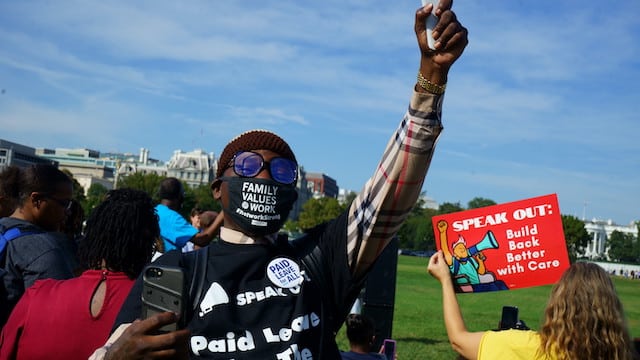What’s Behind the Momentum for Paid Sick Days?

By Ellen Bravo
In just two weeks, the movement for paid sick days has seen three victories – in Portland, Oregon, Philadelphia, and most recently, New York City. Local coalitions in each place encountered fierce opposition, and yet the wave of wins continues.
Why now?
Because people need it, demanded it, and built the capacity to win.
Yes, hardball politics played a role. But what carries the day is strong and smart organizing by coalitions deeply rooted in their local city or state while linked to a growing national movement.
The need for paid sick days grew more urgent in a bad economy. During the recent flu outbreak, many of the 44 million without paid sick days had to watch public officials on TV telling them to stay home if they had flu symptoms, knowing if they followed these instructions they might not be able to keep the lights on or buy their child a needed inhaler.
Hard times are the worst time to lose a job for being a good parent or safeguarding public health.
A growing body of evidence has demonstrated the need – and coalitions have shared that research, while putting faces to the statistics by collecting stories that show the consequences of having to work sick or being punished for refusing to abandon an ill loved one.
Among the documentation disseminated by our coalitions is research showing that earned sick time boosts the economy by helping workers stay employed and have money to spend. Small business owners cite lack of sales as the greatest obstacle to recovery. As employers like Freddy Castiblanco, owner of Terraza 7 Live Music in Elmhurst, New York, tell colleagues, “”Lack of paid sick days has consequence for business as well as workers, in my community. Those workers are my customers.”
Each coalition has identified local economists who say policies like earned sick time help stop job loss and strengthen the economy. It also helps lower turnover, boost productivity and lessen health care costs.
And the flu season also reminded those who have sick days how many people they come in contact with do not.
Given the need and the benefits, it’s not surprising that support for such policies is enormous. Polls have demonstrated the overwhelming popularity of earned sick days across all demographics and throughout the political spectrum.
Broad, Deep Coalitions
Above all, local activists have brought together a wide range of groups who have a stake in making sure that no one has to jeopardize their health or the health of a loved one in order to stay employed. They’ve built coalitions made up of groups that care about seniors, women, children, labor, chronic diseases and public health; groups that want to end violence and end poverty; business owners and experts in economic development; those who fight for racial justice and equality for the LGBT community; faith groups and those who care about democracy.
Key to success has been engaging workers who know all too well what it means to lack paid sick days – people like Shayna, a therapeutic activities worker at a nursing home in Philadelphia who had to work with an injured hip, or Tamara in New York, who after caring for her sick daughter had to decide whether the lost pay meant going without a metro card or without a phone.
Local business partners are also important, because they help shatter the identity theft of corporate lobbyists who claim to speak for all employers. Small business owners like Leni Juca, owner of Oxium Print and Copy in Queens, New York, say their employees already earn paid sick days because it’s the smart as well as the right thing to do. “With a small business like this one,” Juca said, “we can’t afford to get each other sick.”
In each city, coalition partners have reached out to their constituencies, bringing their voices to decision-makers and the media – and keeping the heat on.
Which Side Are You On?
These community leaders have had a clear message for political leaders: standing up for earned sick time means valuing families and standing with all of these groups. Opposing it means standing with lobbyists for multi-billion dollar corporations like Comcast in Philly. As the New York Times put it, the win in New York “represents a raw display of political muscle by a coalition of labor unions and liberal activists who overcame fierce objections from New York’s business-minded mayor, Michael R. Bloomberg, and his allies in the corporate world.”
And more and more, politicians are getting the message.
We’re proud of what we’ve accomplished. And we’ll stay organized until every single person is able to care for themselves and their loved ones without risking a paycheck or a job.